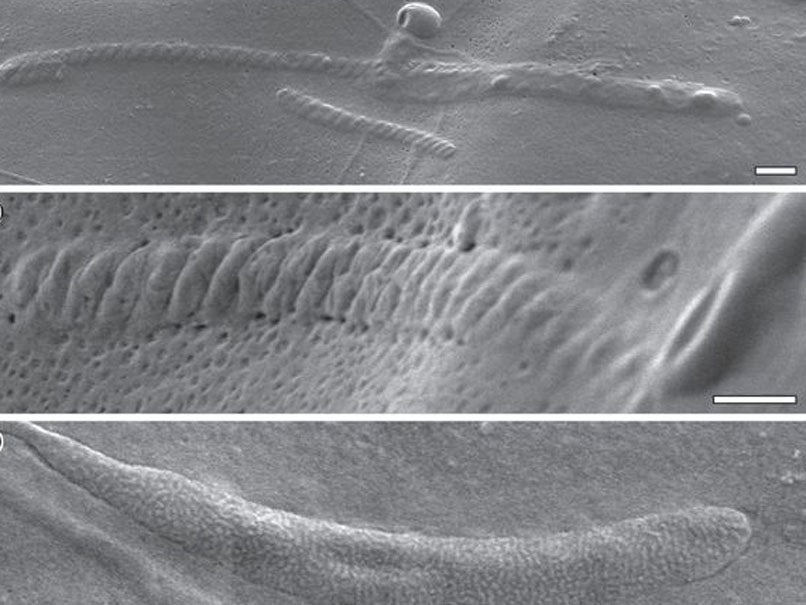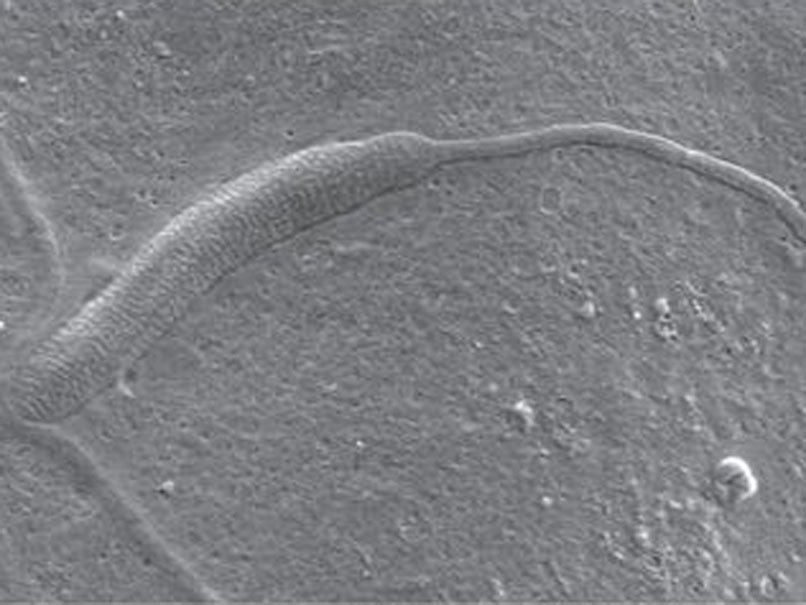World's oldest sperm is discovered in Antarctica – 50 million years after its preservation

Scientists from Sweden have found a fossilised cocoon in Antarctica containing the world's oldest sperm.
The discovery of the fossilised sperm found inside the walls of a 50 million-year-old worm cocoon has been branded "remarkable" by scientists.
The findings, published by The Royal Society, say that the specimen is the oldest animal sperm ever found.
Benjamin Bomfleur, a researcher at the Swedish Museum of Natural History, said that the discovery happened by accident.
While on an expedition on Seymour Island on the Antarctic Peninsula, Thomas Mörs, also a paleobiologist, was looking for small mammal bones when he came across a fossilised cocoon.
Dr Mörs gave the cocoon to Dr Bomfleur who identified it as a clitellate worm cocoon.

The researchers were surprised that when they looked inside the walls of the cocoon to examine its structure, they found fragments of the creature's sperm.
The clitellate worm's sperm is very short lived and therefore rare to find but was able to remain preserved for so long because it became trapped in the jelly-like cocoon before it hardened.
Using radiometric dating, the scientists found that the sperm dates back to the early Eocene Era.
The sample was spectacularly well preserved, but did not contain any organic material or DNA.
The finding beats the previous record by 10 million years.
Join our commenting forum
Join thought-provoking conversations, follow other Independent readers and see their replies
Comments
Bookmark popover
Removed from bookmarks